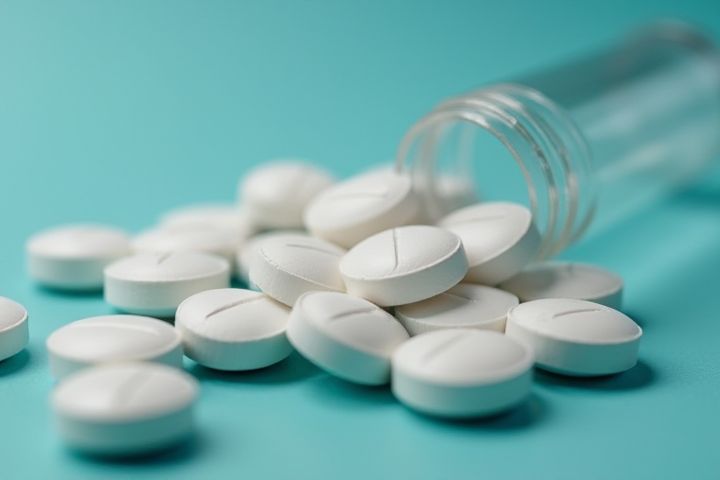
Pharmaceutical companies in Nigeria play a crucial role in the healthcare system, addressing the nation's growing demand for affordable and effective medications. The industry comprises several key players, including manufacturers, distributors, and wholesalers, which together ensure a reliable supply of essential drugs across various therapeutic categories. With a focus on local production, many Nigerian pharmaceutical companies are increasingly investing in research and development to create innovative treatments tailored to the specific health challenges faced by the population. Regulatory bodies, such as the National Agency for Food and Drug Administration and Control (NAFDAC), oversee these companies to maintain safety and efficacy standards in the market. By prioritizing local manufacturing, Nigeria aims to reduce dependency on imports, enhance drug accessibility, and promote economic growth in the health sector.
Drug Manufacturing Industry
Pharmaceutical companies in Nigeria predominantly operate within the drug manufacturing industry, which is pivotal for local healthcare solutions. These companies produce a wide range of medications, including essential generics, antiretrovirals, and over-the-counter products, ensuring availability and affordability for the Nigerian population. With a growing emphasis on local production, these manufacturers contribute to reducing dependence on imported medications while enhancing the country's capacity to respond to public health needs. The collaboration between regulatory bodies and pharmaceutical firms is crucial in ensuring compliance with quality standards and fostering innovation in drug development.
Market Share and Competition
Pharmaceutical companies in Nigeria prioritize gaining market share and navigating competition within the expanding healthcare sector. Major players invest in research and development to innovate effective medications while maintaining affordable pricing strategies. A robust distribution network and strategic partnerships with healthcare facilities are essential for improving access to essential drugs. With an increasing population and rising healthcare demands, understanding consumer needs plays a crucial role in shaping marketing strategies tailored to your specific target audience.
Regulatory Environment
Pharmaceutical companies in Nigeria operate within a regulatory environment shaped by the National Agency for Food and Drug Administration and Control (NAFDAC), which ensures compliance with safety and quality standards. These companies must navigate complex regulations regarding drug registration, manufacturing practices, and marketing strategies to maintain market access. Importantly, adherence to Good Manufacturing Practices (GMP) is crucial for pharmaceutical firms to ensure product integrity and consumer safety. By fostering collaboration with relevant government agencies, industry stakeholders can drive improvements in regulatory frameworks, promoting innovation and enhancing the overall healthcare landscape in Nigeria.
Research and Development Initiatives
Pharmaceutical companies in Nigeria prioritize Research and Development (R&D) initiatives to enhance healthcare outcomes and address local disease burdens. These companies invest in innovative drug formulation and biotechnology to cater to specific health challenges prevalent in the region, such as malaria and tuberculosis. Collaborations with academic institutions and international organizations further strengthen their R&D capabilities, leading to the development of affordable and effective medicines. As a consumer, your awareness of these advancements can foster support for local pharmaceutical innovation, ultimately contributing to improved public health.
Local and Multinational Presence
Pharmaceutical companies in Nigeria play a crucial role in the healthcare sector by balancing local manufacturing with international partnerships. These organizations often strive for compliance with the World Health Organization's pharmaceutical quality standards while catering to domestic health needs. By establishing a local presence, they enhance access to essential medications, thereby promoting public health and economic growth. Your engagement with these firms can contribute to the ongoing efforts in improving healthcare delivery across Nigeria.
Distribution Networks
Pharmaceutical companies in Nigeria are increasingly concentrating on the optimization of distribution networks to enhance the availability of medications across various regions. These networks facilitate timely delivery of essential drugs, ensuring rural and urban communities have access to life-saving treatments. Advanced technology and logistics solutions are being employed to streamline operations, reducing wastage and improving efficiency in supply chains. By prioritizing robust distribution systems, these companies are working to address public health challenges and improve overall healthcare outcomes in the nation.
Challenges and Opportunities
Pharmaceutical companies in Nigeria face significant challenges such as regulatory hurdles, inadequate infrastructure, and fierce competition from imported drugs. However, these companies also encounter opportunities to innovate and expand their product lines, particularly in producing generic medications to meet local healthcare needs. The burgeoning population and increasing demand for affordable healthcare solutions further create a robust market for domestic pharmaceutical manufacturing. By investing in research and development, Nigerian pharmaceutical firms can enhance their competitiveness and contribute to the nation's healthcare system.
Public Health Impact
Pharmaceutical companies in Nigeria are increasingly prioritizing public health impact by developing affordable medications and innovative health solutions. These organizations target prevalent diseases such as malaria, HIV/AIDS, and tuberculosis, ensuring access to essential treatments for the population. By collaborating with government entities and non-governmental organizations, they enhance healthcare delivery and disease prevention strategies across the nation. Your support for local pharmaceutical initiatives can significantly contribute to improving overall health outcomes in Nigeria.
Innovation in Generic Medicines
Pharmaceutical companies in Nigeria are increasingly prioritizing innovation in generic medicines, aiming to enhance healthcare accessibility and affordability. By developing high-quality generic drugs that replicate the efficacy of branded counterparts, they contribute significantly to reducing healthcare costs for patients. Regulatory frameworks in Nigeria support this trend, facilitating quicker approvals for generic medication, thus ensuring that essential treatments are available to the public. As a result, the Nigerian pharmaceutical landscape is evolving, fostering local production capabilities and attracting investment in the generic sector.
Compliance with Global Standards
Pharmaceutical companies in Nigeria are increasingly prioritizing compliance with global standards to enhance the quality and safety of their products. This commitment includes adherence to Good Manufacturing Practices (GMP) and rigorous quality assurance protocols, ensuring that medications meet international health regulations. With the growing demand for high-quality pharmaceuticals, these companies are investing in advanced technologies and skilled workforce training to elevate their manufacturing processes. Your understanding of Nigeria's pharmaceutical landscape will be enriched by recognizing the vital role of these standards in fostering consumer trust and promoting public health.
